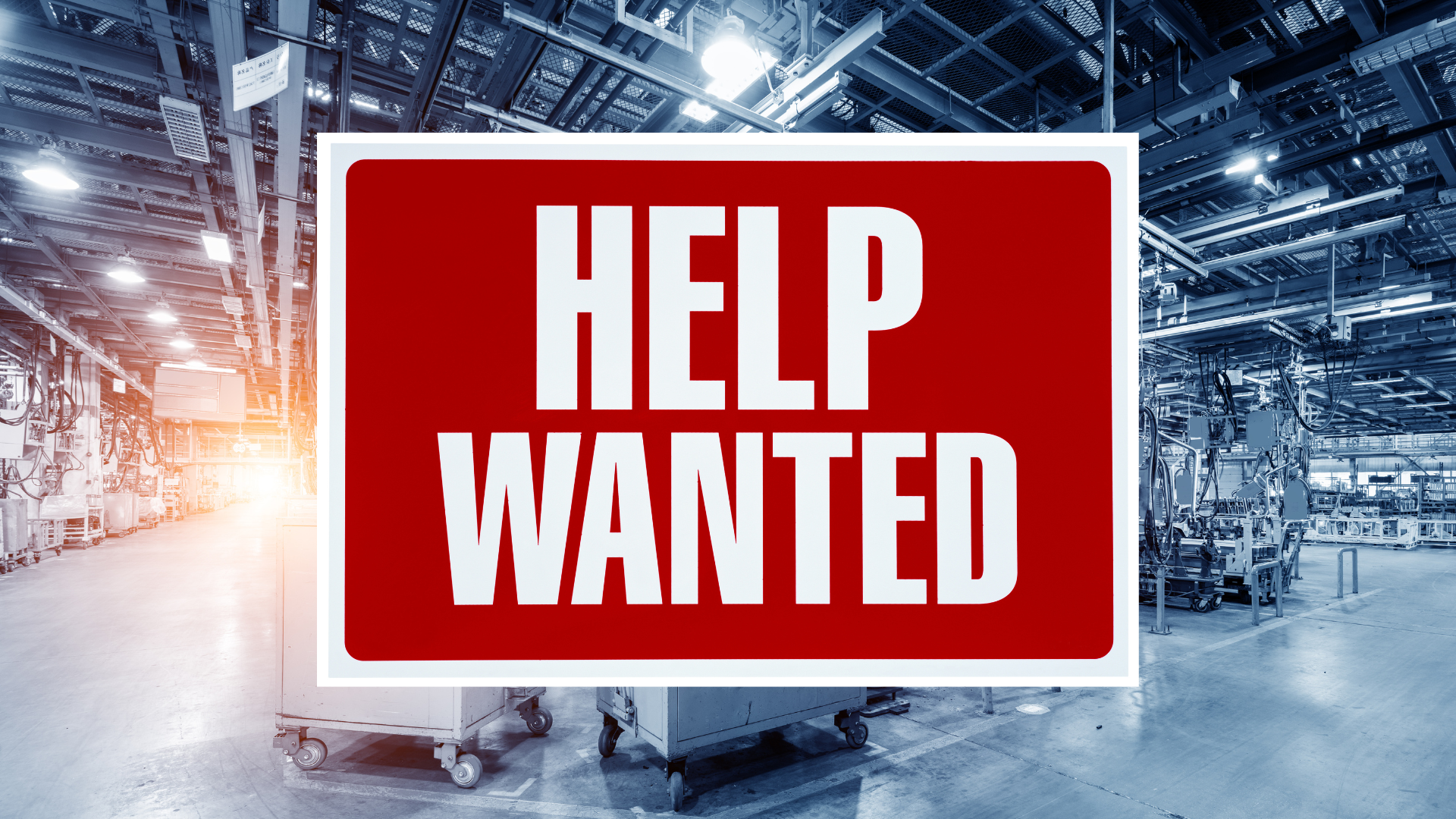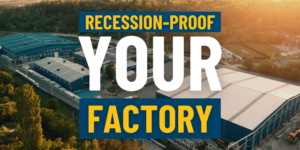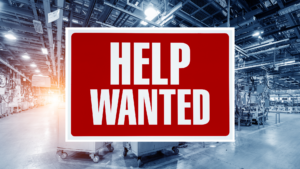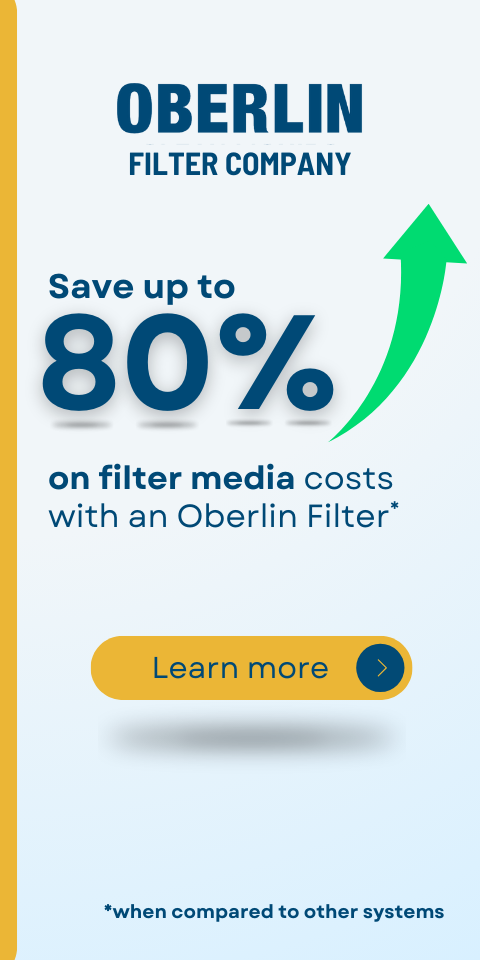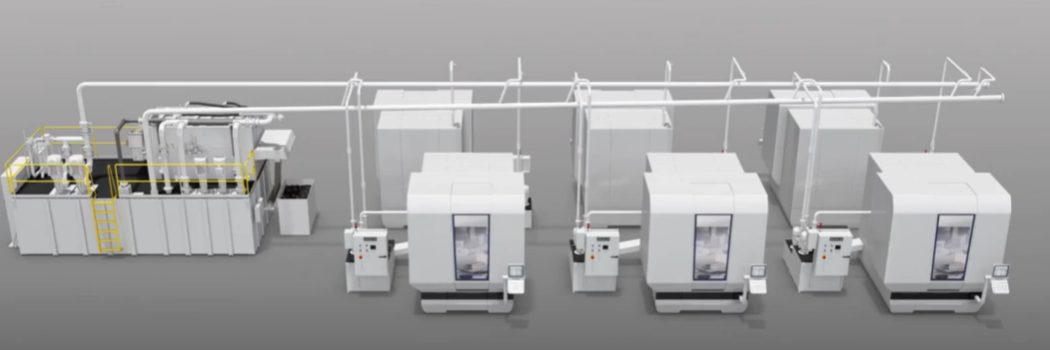Streamline Production with Oberlin's Automated Filtration Solutions
The manufacturing sector is facing an unprecedented labor crisis. According to the National Association of Manufacturers (NAM), a staggering 750,000 manufacturing jobs remain unfilled across the United States. This shortage is projected to intensify further, with Deloitte predicting that 2.1 million manufacturing jobs will lie vacant by 2030.
What’s behind this rise in unfilled roles? Some point to an aging workforce nearing retirement, and others note the waning interest among younger generations in pursuing blue-collar professions. As companies try to keep up their operations without optimal staffing, many are looking to optimize their operations rather than burn out their teams.
One area that can be optimized pretty quickly is filtration. For industries using industrial filtration systems (think treatment for wastewater, food manufacturers, and oil and gas production), quality filtration matters. Yet, manual filtration is labor-intensive, requiring constant monitoring and frequent media changes.
With an alreadystrained workforce and tight margins, any bottleneck can severely impede production, hamper quality control, and escalate costs. The solution? Automation.
By upgrading to advanced filtration systems, companies can enhance their filtration, reduce manual interventions, and reallocate their limited personnel to other core tasks – while ensuring that their teams aren’t stretched thin and can focus on the bigger picture.

How Does Automated Filtration Work?
Automatic pressure filtration represents a paradigm shift in industrial liquid filtration. At its core, this process employs powerful pumps to forcefully drive the liquid through tightly packed filter media. As the liquid passes through, even microscopic particulates down to 1 micron in size are trapped, delivering exponentially cleaner effluent than conventional filtration methods.
The versatility of automatic pressure filtration is impressive. Regardless of whether the application involves coolants, metal finishing chemistries, frying oils, or wastewater laden with metal hydroxides or other contaminants, this advanced technology excels. Up to 99.99% of suspended solids can be consistently removed across diverse industrial sectors.
Unlike traditional media filters, which require frequent manual changeouts, these automated systems leverage higher differential pressure to extend filter cycles. At the end of every filtration cycle, air is used to dry the cake. The dry cake is separated from the filter media for straightforward disposal of both. This intelligent self-cleaning capability minimizes manual intervention and downtime.
By delivering consistently pure liquids, these systems unlock substantial gains in production efficiency and cost savings.

The Benefits of Moving To Automated Filtration Systems
Improved Product Quality and Consistency
With contaminants removed down to the micron level, automatic filters ensure unparalleled liquid purity. For manufacturers, this translates into superior product quality and batch-to-batch consistency. And food and beverage producers can help maintain the flavor and quality of their products by using automated filtration to remove impurities that can affect taste.
Extended Equipment Life
Highly filtered liquids place far less strain on process equipment like nozzles, pumps, and application machinery. Freed from particulate wear, these assets experience longer service intervals between maintenance or replacement. The associated downtime costs and capital expenditures are minimized.
Reducing Disposal Costs and Enabling Recycling
Many industrial processes generate hazardous sludge, requiring costly disposal. Pressure filters avoid this by capturing solids in an easily handled dry cake form. This byproduct can often be recycled or even sold, transforming a disposal liability into a potential revenue stream. The filtered liquids themselves can also be recycled rather than discarded.

Can Automated Filtration Help Alleviate the Labor Crunch?
When labor is sparse, companies are forced to get creative with their operations. For many, this means adding responsibility to the shoulders of their existing employees – which can increase the rate of human error and decrease overall efficiency.
Automated filtration systems can help complement your operations by taking over the manual tasks of monitoring and operating equipment. This reduces the risk of human error and frees up employees to focus on other important tasks, leading to increased productivity and reduced labor costs.
Reducing Manual Processes
Traditional filtration methods demand constant monitoring and frequent manual media changes by operators. When time is given to labor-intensive tasks, it takes away from other essential duties.
Automated filtration systems can help alleviate this burden by performing these tasks automatically. Employees can focus on more critical responsibilities and increase their productivity by reducing manual processes.
Facilitating Lights-Out Operations
Pressure filtration removes the need for manual interventions, unlocking the capability for unattended, round-the-clock operation. This maximizes your production uptime and allows for increased output without additional labor costs. With automated filtration systems, you can trust that your production will continue smoothly even when no one is physically present.
Resilience to Personnel Changes
Even when experiencing high workforce turnover – a common reality across manufacturing – automated filtration keeps up operational continuity. Since manual processes are minimized, there is little reliance on seasoned operators’ expertise. New hires can be swiftly onboarded without impacting quality or productivity.
By investing in cutting-edge pressure filtration, you overcome bottlenecks and create an optimized environment for your teams to thrive. Your existing staff can focus on higher-skilled roles, ensuring that this critical operation is being executed flawlessly, 24/7, with utmost efficiency and workplace safety.

Don’t Let Labor Shortages Slow You Down – Experience Automation with Oberlin Filter
With over 60 years of experience and thousands of successful installations worldwide, Oberlin has perfected this technology to meet the most demanding industrial applications.
At the heart of Oberlin’s systems lies our patented filter design engineered for robust, continuous-duty performance. Our advantage lies in harnessing higher pressure differentials to drive filtration – a powerful 30-40 PSI force compared to just 7.5 PSI for typical vacuum filters.
This superior pressurized process enables Oberlin’s systems to achieve remarkable results. Our patented filter designs can remove particulates down to 1 micron in size with 99.99% efficiency, delivering exponentially cleaner liquids than conventional methods. The filtered solids emerge as an extremely dry cake requiring no further dewatering.
At the core of each Oberlin unit is an inexpensive filter media designed to trap the particles and prevent them from entering the clean side of the system. As the liquid is forced through under high pressure, solids rapidly accumulate into a dense cake atop the media surface. This cake itself acts as an additional filter, trapping even finer particulates through depth filtration.
The result? A fully automated, self-cleaning operation. Plant staff are free from labor-intensive filter media changes or hazardous solids handling. The filters run unattended 24/7, facilitating lights-out manufacturing despite personnel shortages.
Get Started Today
We’re proud to backup our automated filtration systems with total support – so you can get up and running quickly. Our team of experts will work with you to understand your specific filtration needs and provide the ideal solution.
Upgrade your filtration process today with Oberlin Filter Company’s advanced technology and high-quality filters. With Oberlin, your operations just got a whole lot smoother.
JOIN OUR INDUSTRY NEWSLETTER
Your source for expert filtration knowledge, tips, and solutions to keep your operations running smoothly.

